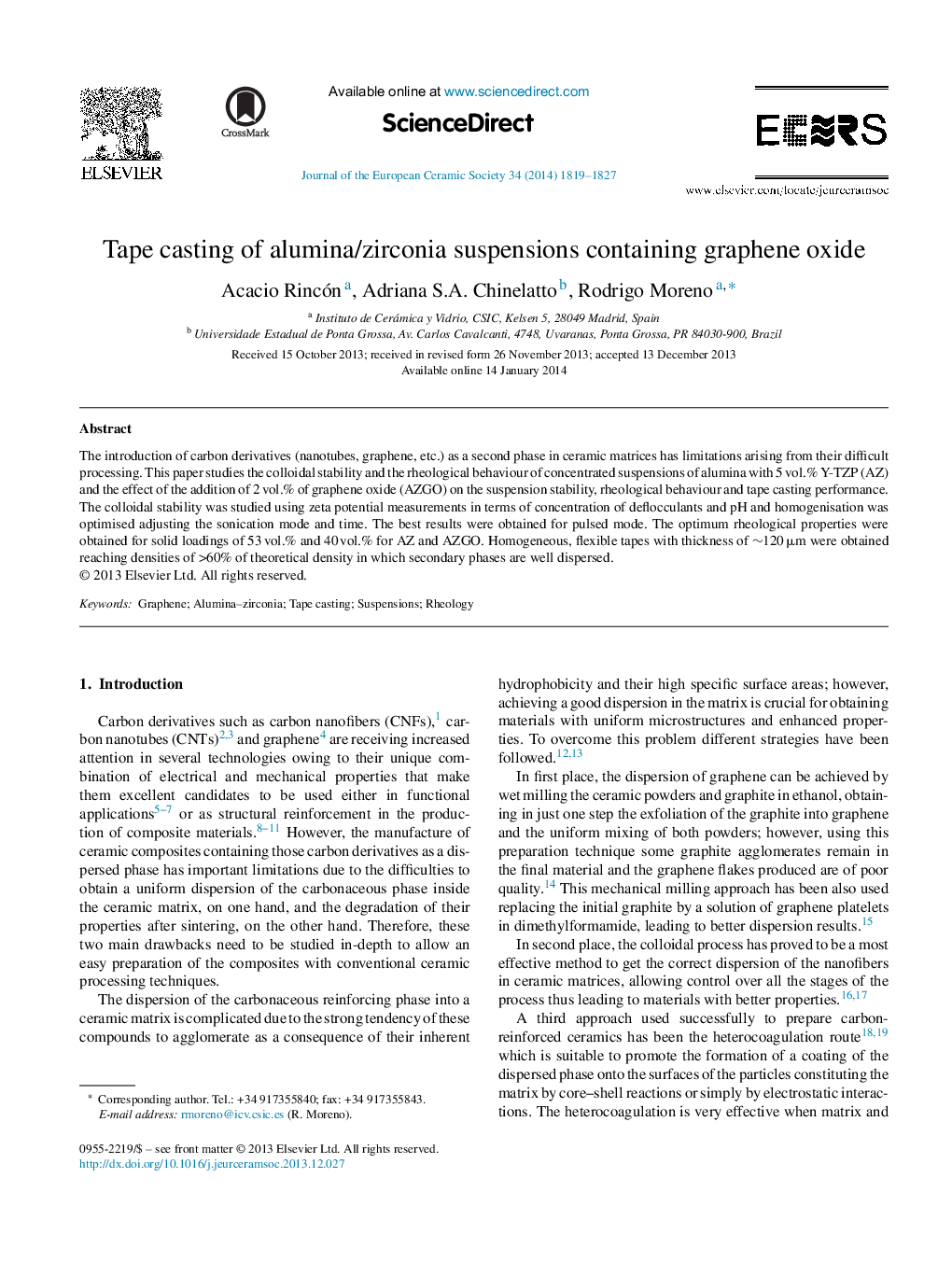| Article ID | Journal | Published Year | Pages | File Type |
|---|---|---|---|---|
| 10629635 | Journal of the European Ceramic Society | 2014 | 9 Pages |
Abstract
The introduction of carbon derivatives (nanotubes, graphene, etc.) as a second phase in ceramic matrices has limitations arising from their difficult processing. This paper studies the colloidal stability and the rheological behaviour of concentrated suspensions of alumina with 5 vol.% Y-TZP (AZ) and the effect of the addition of 2 vol.% of graphene oxide (AZGO) on the suspension stability, rheological behaviour and tape casting performance. The colloidal stability was studied using zeta potential measurements in terms of concentration of deflocculants and pH and homogenisation was optimised adjusting the sonication mode and time. The best results were obtained for pulsed mode. The optimum rheological properties were obtained for solid loadings of 53 vol.% and 40 vol.% for AZ and AZGO. Homogeneous, flexible tapes with thickness of â¼120 μm were obtained reaching densities of >60% of theoretical density in which secondary phases are well dispersed.
Related Topics
Physical Sciences and Engineering
Materials Science
Ceramics and Composites
Authors
Acacio Rincón, Adriana S.A. Chinelatto, Rodrigo Moreno,
